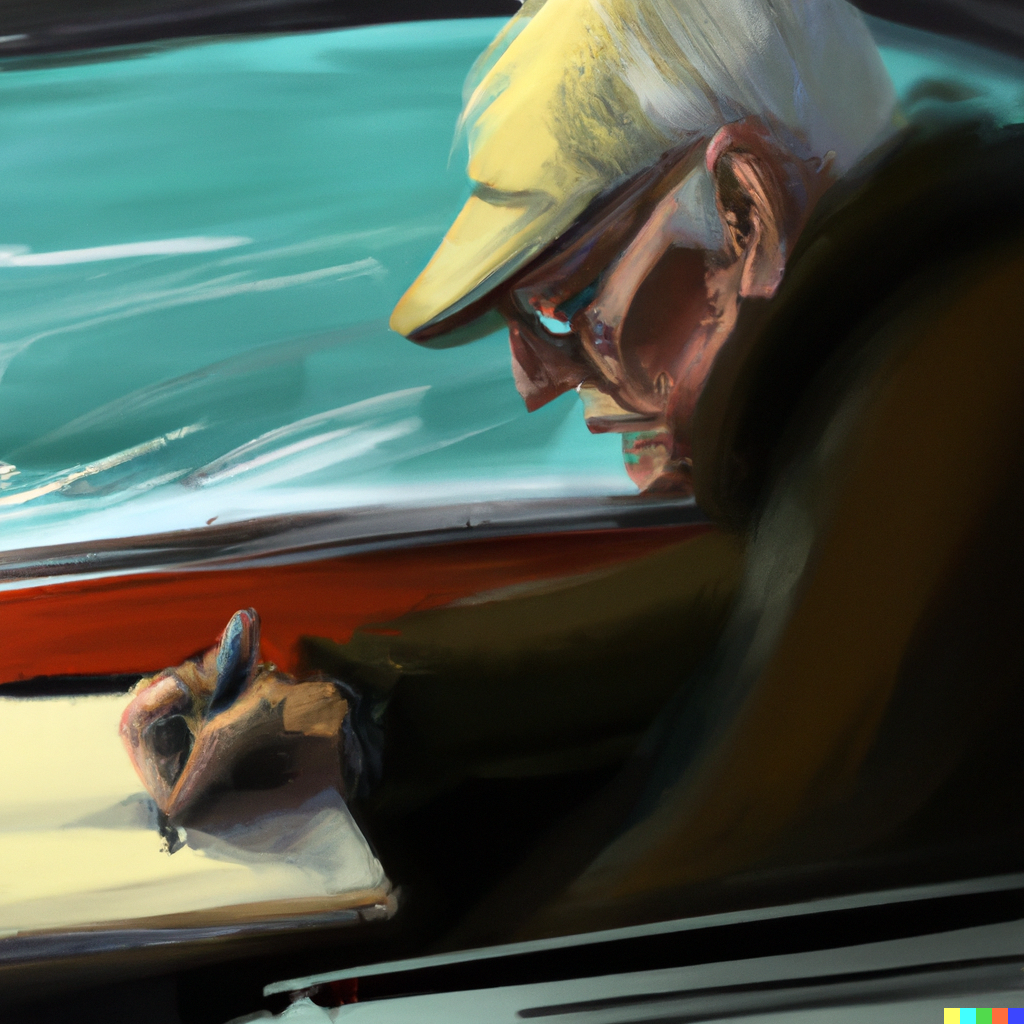Thomas Harrison’s lifelong devotion to recording his memories in Venetian leather notebooks reveals the power of the written word and the unyielding spirit of a man determined to preserve the beauty of a fading world.
For nearly half a century, Thomas Harrison had meticulously documented his life in a series of leather-bound diaries. It all began during a trip to Venice with his father when he was just a teenager. As a token of that unforgettable experience, his father gifted him a beautiful Venetian leather notebook, and a lifelong passion was born.
Throughout the many significant moments of his life, Thomas’s diary remained a constant companion. When he got married, rather than snapping photographs like most people, he chose to document the day in words. As his bride walked down the aisle, her radiant smile and the way her dress shimmered in the sunlight were immortalized in delicate, flowing script. The emotions he felt that day, as they exchanged their vows and began their life together, were captured forever within the pages of his diary.
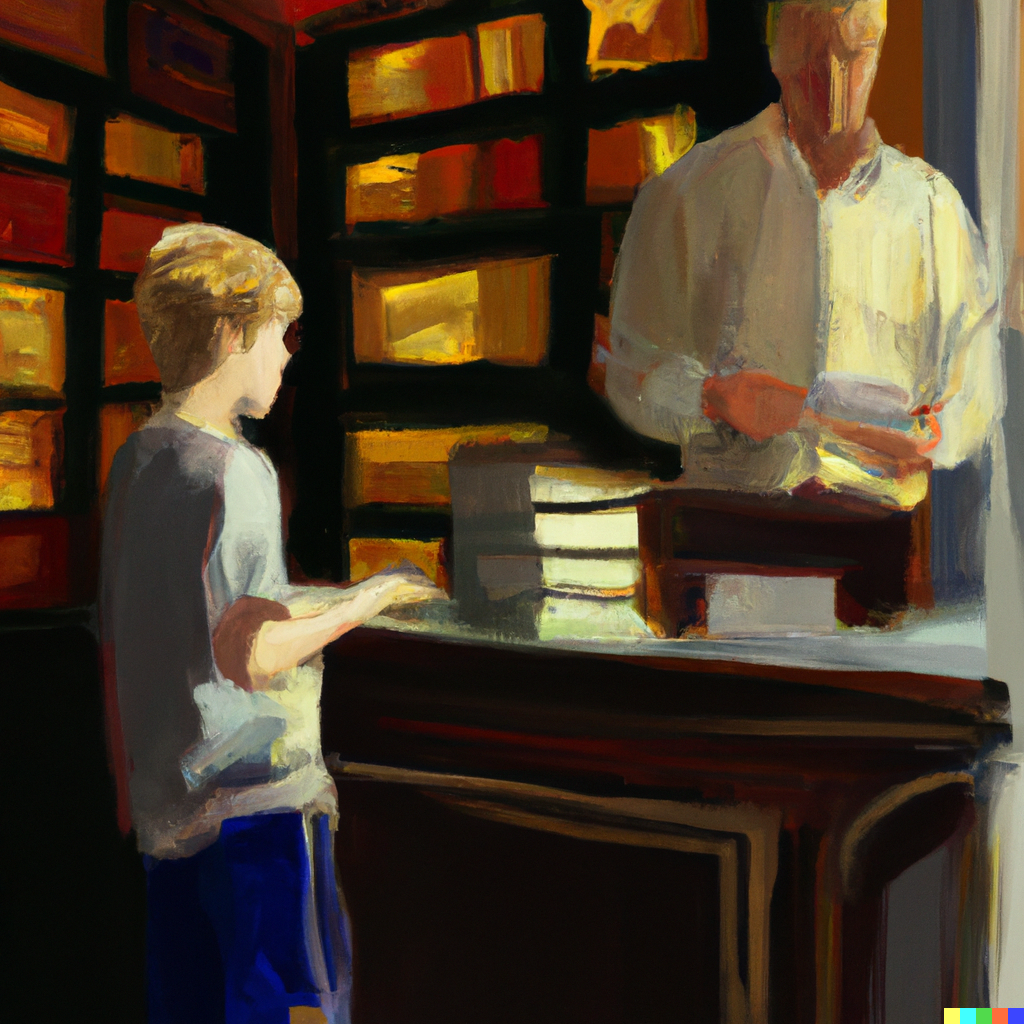
When his first child was born, Thomas once again reached for his trusted notebook and pen. As he cradled his newborn daughter, he detailed the overwhelming sense of love and responsibility that washed over him. He described the softness of her skin, the warmth of her tiny body, and the gentle rise and fall of her chest as she slept in his arms. These precious memories, safely recorded in ink, were a testament to the love he felt for his growing family.
No matter the occasion, Thomas’s diary was always with him, tucked securely in the pocket of his jacket, right next to his heart. The pocket-sized notebook and the same trusted pen were his faithful companions, bearing witness to the joys, sorrows, and milestones of his life. Through his carefully chosen words, Thomas created an enduring legacy, an intimate portrait of a life well-lived.
Every two or three years, Thomas returned to Venice to restock his supply of notebooks. He always purchased them from the same small shop run by a family who had been in the business for generations, and they always recognized him when he walked in. The quaint little shop was a true testament to the passage of time. Situated in a narrow alley off the bustling Piazza San Marco, it was an oasis of tranquility and tradition. The wooden sign above the entrance, adorned with intricate gold lettering, revealed the shop’s name and the family’s proud heritage. Over the years, as the rest of the city evolved, this charming store remained unchanged.
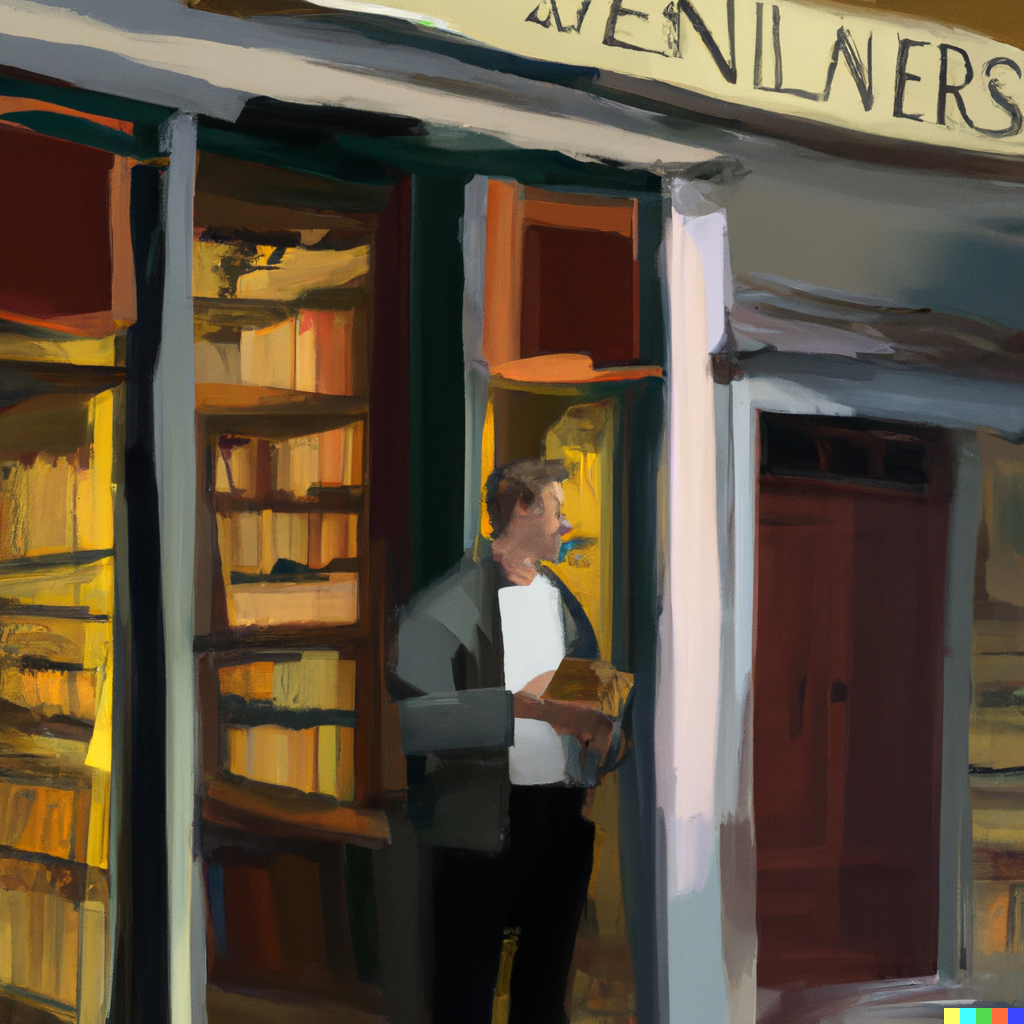
As soon as Thomas would push open the heavy wooden door, the familiar scent of rich leather and antique paper enveloped him, instantly transporting him back to his very first visit. The shop was dimly lit, illuminated only by the warm glow of vintage lamps that cast flickering shadows on the walls lined with shelves. The worn wooden floorboards creaked softly underfoot, a soothing lullaby that whispered the stories of countless patrons who had walked the same path.
The notebooks, the shop’s crowning glory, were meticulously arranged in neat rows, their covers a kaleidoscope of colors and intricate designs. Each one was a work of art, handcrafted with love and skill that had been passed down through generations. The family’s dedication to their craft remained unwavering, their passion evident in every carefully stitched binding and embossed detail.
For Thomas, stepping into that shop was like entering a time capsule. It was a sanctuary where the relentless march of progress halted, and the beauty of craftsmanship and tradition reigned supreme. And despite the world changing around it, the shop remained a steadfast constant in his life, a comforting link to his past and a treasured piece of his identity.
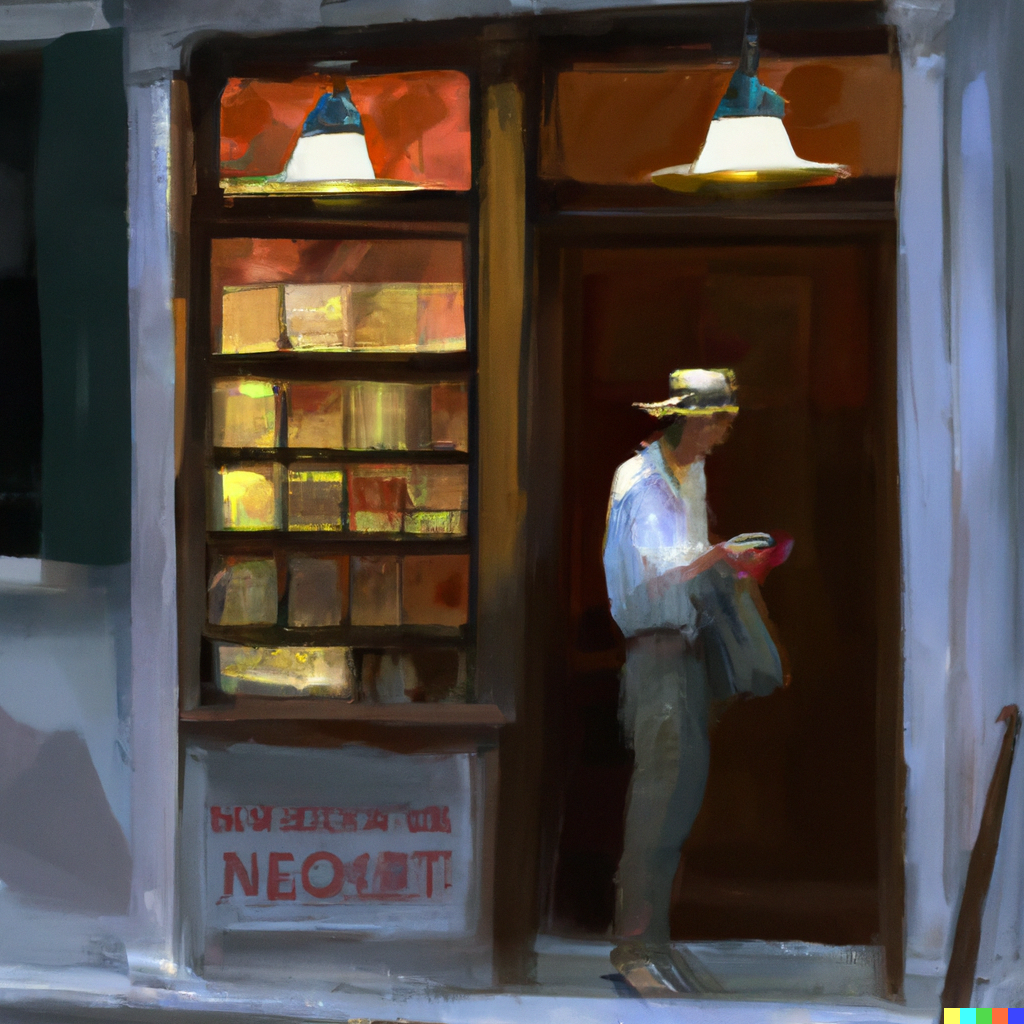
Now in his 70s, Thomas embarked on another pilgrimage to the city of canals. He walked the familiar cobblestone streets, anticipation building as he approached the beloved shop. But to his dismay, it was gone, replaced by a generic souvenir store selling cheap trinkets and mass-produced leather notebooks. His heart sank.
Determined to find the family behind his cherished notebooks, Thomas asked around and, to his relief, discovered that they still lived in Venice. He eventually found the grandson of the original owners, a young man named Marco. As they exchanged stories, Marco explained how they had been forced to close the shop, unable to compete with the flood of inexpensive Chinese leather notebooks that had saturated the market.
Feeling a mix of sadness and nostalgia, Thomas asked if there were any of the original notebooks left. Marco hesitated for a moment before inviting him to his apartment. There, hidden away in a dusty corner, were the last twelve notebooks from their family’s shop.
Thomas reached for his wallet, but Marco refused any payment. “It was people like you that we were in business for,” he said. “Please, take them as a gift.”
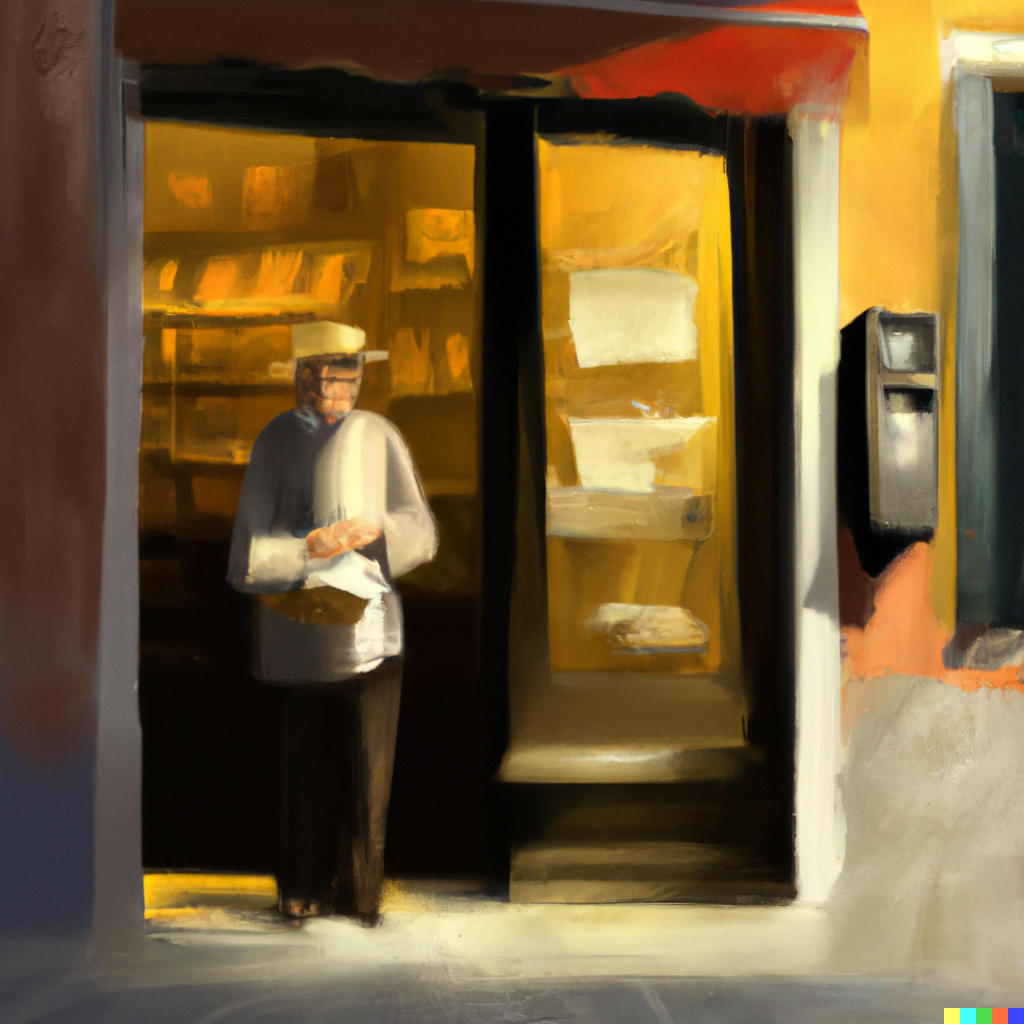
With gratitude and a heavy heart, Thomas accepted the notebooks. As he rode the speedboat to the airport, he realized that this was likely his last visit to Venice. The city had changed so much that it no longer resembled the magical place that had captured his heart so long ago.
As the boat’s engine hummed and the water danced around him, Thomas clutched the stack of leather notebooks tightly. Though the Venice he once knew might be gone, these notebooks held the essence of the city he loved. He flew back to his home in London, where he wrote his life’s final chapters in the last twelve notebooks.
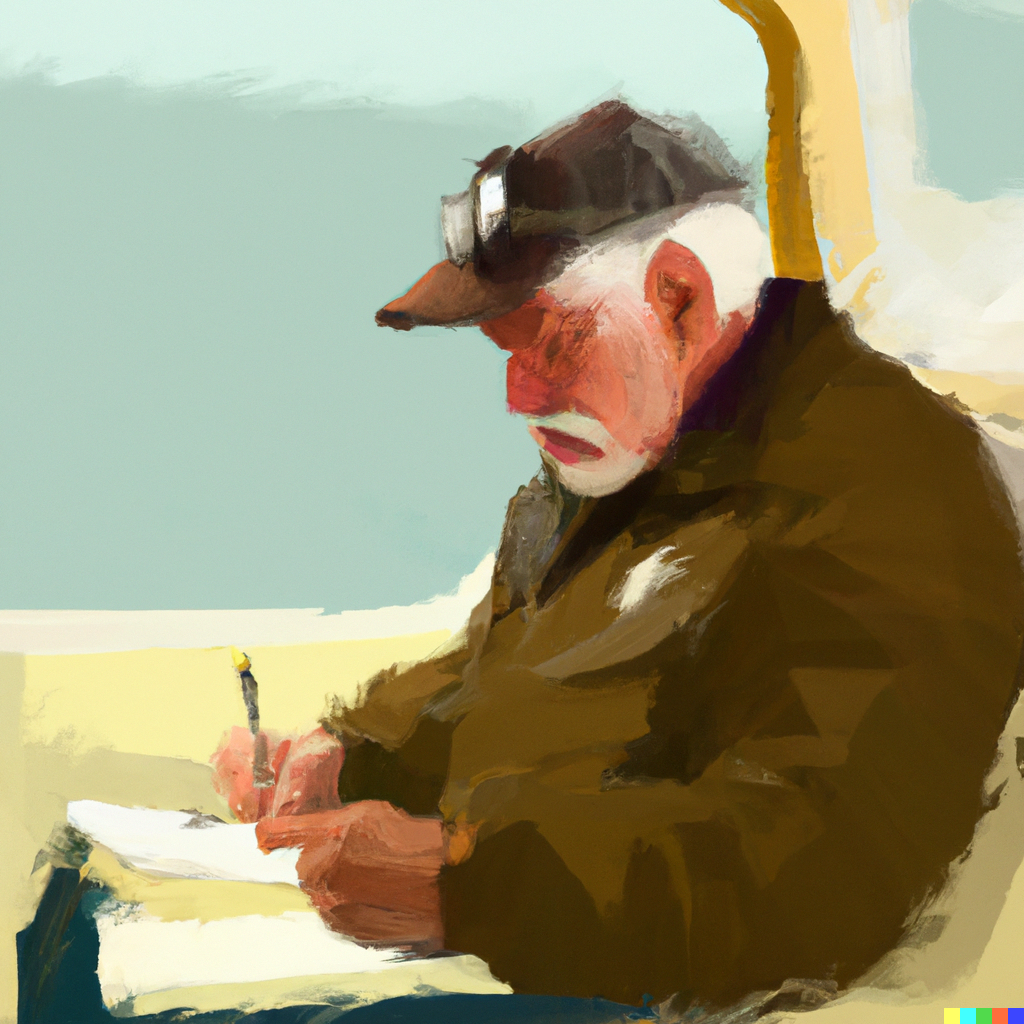
All images were generated using DALL.E 2 (Open AI)
